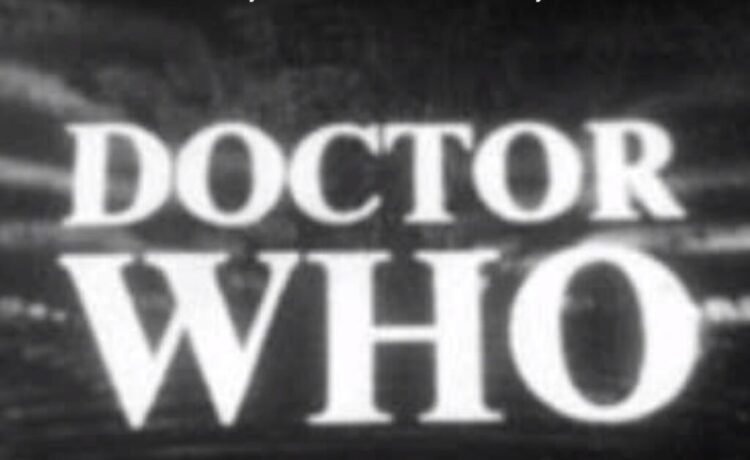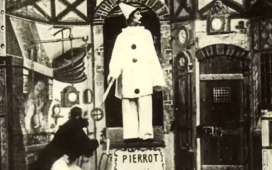We’ve focused a fair bit here on the work of Delia Derbyshire, pioneering electronic composer of the mid-twentieth century—featuring two documentaries on her and discussing her role in almost creating an electronic backing track for Paul McCartney’s “Yesterday.” There’s good reason to devote so much attention to her: Derbyshire’s work with the BBC’s Radiophonic Workshop laid the bedrock for a good deal of the sound design we hear on TV and radio today.
And, as we pointed out previously, her electronic music, recorded under her own name and with the band White Noise, influenced “most every current legend in the business—from Aphex Twin and the Chemical Brothers to Paul Hartnoll of Orbital.”
Yet for all her influence among dance music composers and sound effects wizards, Derbyshire and her music remain pretty obscure—that is except for one composition, instantly recognizable as the original theme to the BBC’s sci-fi hit Doctor Who (hear it at the top), “the best-known work of a ragtag group of technicians,” writes The Atlantic, “who unwittingly helped shape the course of 20th-century music.” Written by composer Ron Grainer, the song was actually brought into being by the Radiophonic Workshop, and by Derbyshire especially. The story of the Doctor Who theme’s creation is almost as interesting as the tune itself, with its “swooping, hissing and pulsing” that “manages to be at once haunting, goofy and ethereal.” Just above, you can see Derbyshire and her assistant Dick Mills tell it in brief.
What we learn from them is fascinating, considering that compositions like this are now created in powerful computer systems with dozens of separate tracks and digital effects. The Doctor Who theme, on the other hand, recorded in 1963, was made even before basic analog synthesizers came into use. “There are no musicians,” says Mills, “there are no synthesizers, and in those days, we didn’t even have a 2‑track or a stereo machine, it was always mono.” (Despite popular misconceptions, the theme does not feature a Theremin.) Derbyshire confirms; each and every part of the song “was constructed on quarter-inch mono tape,” she says, “inch by inch by inch,” using such recording techniques as “filtered white noise” and something called a “wobbulator.” How were all of these painstakingly constructed individual parts combined without multitrack technology? “We created three separate tapes,” Derbyshire explains, “put them onto three machines and stood next to them and said “Ready, steady, go!” and pushed all the ‘start’ buttons at once. It seemed to work.”
The theme came about when Grainer received a commission from the BBC after his well-received work on other series. He “composed the theme on a single sheet of A4 manuscript,” writes Mark Ayres in an extensive online history, “and sent it over from his home in Portugal, leaving the Workshop to get on with it.” Aware that the musique concrète techniques Derbyshire and her team used “were very time-consuming, Grainer provided a very simple composition, in essence just the famous bass line and a swooping melody,” as well as vaguely evocative instructions for orchestration like “wind bubble” and “cloud.” Ayres writes, “To an inventive radiophonic composer such as Delia Derbyshire, this was a gift.” Indeed “upon hearing it,” The Atlantic notes, “a very impressed Grainer barely recognized it as his composition. Due to BBC policies at the time, Grainer—against his objections—is still officially credited as the sole writer.” But the credit for this futuristic work—which sounds absolutely like nothing else of the time and “which brought to a wide audience methods once exclusive to the high modernism of experimental composition”—should equally go to Derbyshire and her team. You can contrast that ahead-of-its-time original theme with all of the iterations to follow in the video just above.
Note: An earlier version of this post appeared on our site in 2016.
Related Content:
Hear Seven Hours of Women Making Electronic Music (1938- 2014)
Two Documentaries Introduce Delia Derbyshire, the Pioneer in Electronic Music
Josh Jones is a writer and musician based in Durham, NC.















